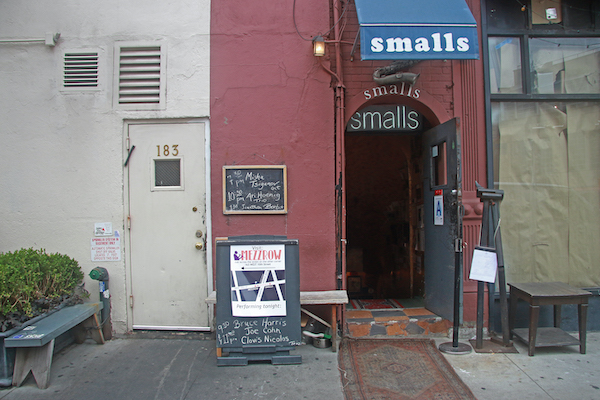Jan 13, 2026 2:09 PM
More Trump-Kennedy Center Cancellations
The fallout from the renaming of the John F. Kennedy Center for the Performing Arts to include President Donald…

Spike Wilner, proprietor of the New York venue Smalls, recently began hosting shows at his club for the first time since the pandemic hit.
(Photo: Courtesy of Smalls)Compared to the other casualties of the worldwide coronavirus pandemic, it barely registers in media coverage and the public consciousness.
Yet in mid-March, the sudden shuttering of venues for live music—grand concert halls and small clubs, alike—constituted a devastating blow to jazz, strangling the livelihood of musicians and, in many cases, threatening their ability to survive.
If the indefinite closures have left musicians staggering, the cancellation of most spring and summer festivals was the coup de grâce, though signs of life have shown through as Jazzfest Passau forges ahead.
Venue owners in the United States, like all small businesses, are fighting to survive and trying to pay monthly bills in the face of a complete loss of revenue. Temporary moratoriums on evictions in some U.S. states, including California and New York, have helped buy time—without relieving owners of their rent obligations over the long term.
Catalina Popescu, owner of Los Angeles’ Catalina Jazz Club, has been operating the venue since 1986, but shut down March 15 and laid off the entirety of her 25-person staff.
“It’s been very painful,” Popescu said in April. “We’re OK for the time being. Nobody can force you to pay rent. [The landlords] send me an email every so often, but they can’t do anything about it. ... I fought for this business for 34 years, to stay open, to make it successful, to be a great place for people to listen to music and for musicians to perform. I hope we’ll be able to reopen.”
In April, more than 800 stateside independent concert presenters banded together to form the National Independent Venue Association, aiming to lobby Congress for financial assistance. By mid-May, the association had more than 1,600 members in all 50 states, according to its website.
“Independent venues were among the first to close as COVID-19 spread across the country, and unfortunately, are also likely to be among the last to reopen,” the group wrote in a press release.
Clubs’ financial pressures aren’t any better in London, either.
“We have nearly 100 [people] on the payroll. All but six are furloughed. We’re hoping the government’s scheme will keep everybody happy,” said Simon Cooke, general manager of Ronnie Scott’s, the landmark London jazz club, while discussing the government’s furlough program, which provides businesses 80 percent of their normal payroll costs, up to £2,500 per employee. The program, which began in April, was backdated to March 1, and has been extended, with changes, through October..
“We’re very established, almost a national institution, been around 60 years,” Cooke continued. “We have about 3,500 paid members, who are very supportive; most renew annually. I think we’ll be all right. If it’s a very long [shutdown], it may be a slow restart.”
In hard-hit New York, Spike Wilner, jazz pianist and proprietor of both Smalls and Mezzrow, was far less sanguine about the future. “Right now, I’m waiting to see if Smalls will exist in another month or so,” he said in March.
At the time, both clubs—which are located on the same block in pricey Greenwich Village—had rent payments of $20,000 apiece coming due.
“I think I’ll be able to get through April, but after that, I don’t know,” he said.

Belá Fleck during an interview with Fredrika Whitfield on CNN.
Jan 13, 2026 2:09 PM
The fallout from the renaming of the John F. Kennedy Center for the Performing Arts to include President Donald…

Peplowski first came to prominence in legacy swing bands, including the final iteration of the Benny Goodman Orchestra, before beginning a solo career in the late 1980s.
Feb 3, 2026 12:10 AM
Ken Peplowski, a clarinetist and tenor saxophonist who straddled the worlds of traditional and modern jazz, died Feb. 2…

The success of Oregon’s first album, 1971’s Music Of Another Present Era, allowed Towner to establish a solo career.
Jan 19, 2026 5:02 PM
Ralph Towner, a guitarist and composer who blended multiple genres, including jazz — and throughout them all remained…

Rico’s Anti-Microbial Instrument Swab
Jan 19, 2026 2:48 PM
With this year’s NAMM Show right around the corner, we can look forward to plenty of new and innovative instruments…

Richie Beirach was particularly renowned for his approach to chromatic harmony, which he used to improvise reharmonizations of originals and standards.
Jan 27, 2026 11:19 AM
Richie Beirach, a pianist and composer who channeled a knowledge of modern classical music into his jazz practice,…